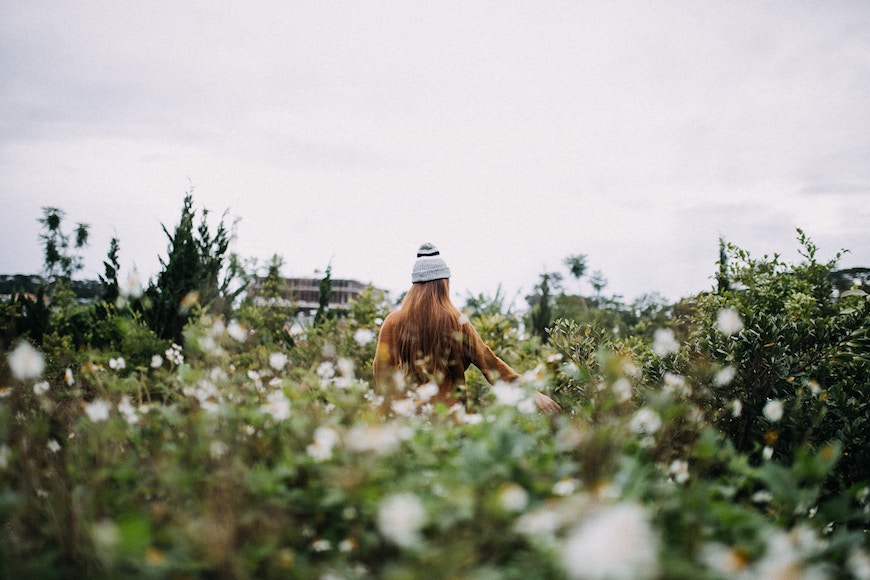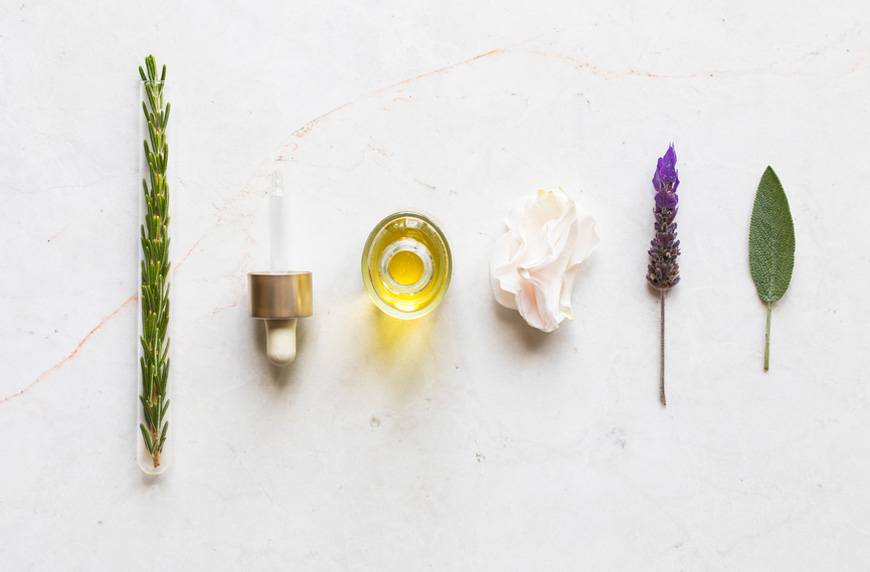In the not-so-distant past, finding beauty products made with organic ingredients required a deep dive into the aisles of crunchy health food stores. No longer. Mainstream brands now list organic ingredients on their labels like a badge of honor and products are much easier to find at stores from Target to Sephora. What's more? The thirst for natural beauty products in North America is expected to expand by nearly 10 percent over the next seven years, according to a recent report.
So as the naturals market balloons, forward-thinking beauty brands are forging the next phase in farm-to-face beauty by beginning to place an emphasis on biodynamics. The standards for growing biodynamic crops far surpass those for organic ones. The methodologies used on farms are designed to not only yield high-quality ingredients, but also to protect the earth and its ecosystems (which is pretty much a win-win). While biodynamic beauty is certainly on the rise (as it is with foods), the nature of the farming and certification processes are stringent, so here's what you need to know about the trend.
Keep scrolling to learn more about biodynamic beauty and what it means for your skin and how you shop.

Where woo-woo meets science
The biodynamic philosophy places an emphasis on conservation. Biodynamic farmers believe that the farm is a self-contained living organism that thrives through techniques that keep the land as wild and indigenous as possible. Composting! Microbial activity and water retention! Soil health! Oh and also the idea that animals, pests, plants, natural elements, and farmers help one another and thrive without much human intervention. Mother Nature. Damn.

{{post.sponsorText}}
Some biodynamic farmers even plant and harvest according to lunar cycles. They consider astronomy when planning their crops (meaning: how plants physically respond to constellations, planets, moons, eclipses and more). And what's more, biodynamic farmers literally go underground to help create soil teeming with biological life by following a time-old biodynamic preparation of cow manure that involves placing it in a horn and burying it underground for the winter.
"Many people look at that as woo-woo and spiritual, but it’s scientifically shown to increase microbial activity in the soil," says Elizabeth Candelario, managing director of Demeter Association, Inc., the American arm of Demeter International, which is responsible for certifying biodynamic farms. "The practice of biodynamics I have seen really emphasizes the relationship between the farmer and the farm."
Demeter holds the oldest ecological certification system in the world and sets specific standards of operation for biodynamic farming, manufacturing, and labeling of products such as food, wine, and yes, beauty products.
How biodynamic goes further than organic
It's become a growing concern that the word “organic” has been used too liberally to describe beauty products, and Demeter's Biodynamic Certification provides an extra level of wholeness. For personal-care products alone, it outlines processing standards that not only ensure ingredients are conscientiously sourced and concocted, but that labeling is completely transparent. One of the stated objectives is “to produce cosmetics that consist of natural products, which are beneficial for the human skin and body and have as few negative environmental consequences as possible.”
One of the stated objectives is “to produce cosmetics that consist of natural products, which are beneficial for the human skin and body and have as few negative environmental consequences as possible.”
So are these products really that much better for you? Well, first remember that biodynamic isn't just about human use but also the wellbeing of the land. Conclusive studies on positive benefits don't exist quite yet but Eminence Organics, which produces a nine-piece Eminence Organics Biodynamic Collection that is Demeter certified, reasons they are. "Because of the harmonious way that biodynamic crops are grown with the land, they have been found to contain up to 13% more potassium, 20% more sodium, 34% more iron and 47% more Vitamin C than conventional produce,” Boldijarre Koronczay, Eminence Organics president told me. By citing this paper, Koronczay believes a higher concentration of vitamins and nutrients could equal healthier ingredients for your skin.

Which brands are using biodynamic ingredients?
In addition to the nine Eminence Organics products, Kjaer Weis' The Beautiful Oil is made with Dioscorea Batatas (or Chinese yam) grown in biodynamic fields that have been additive free for 15 years, along with rose hip oil, sweet almond oil, olive oil, and jojoba seed oil to make a luxurious hydrator worthy of the hefty, $225 price tag. Natural hair and skin-care brand Olylique uses Demeter-certified biodynamic ingredients in a handful of its products including Odylique Tea Tree and Herb Shampoo and Odylique Mascara. Then there’s Martina Gebhardt Natural Cosmetics, the brand headquartered in the Bavarian foothills of the Alps, which produces more than 100 products—all certified biodynamic by Demeter.
Sourcing raw biodynamic ingredients for beauty products—and finding labs certified to process them—can be tricky.
But beyond those, finding beauty products made with biodynamics requires the kind of OG hunting skills it took to find organic beauty products back in the day. Why, if biodynamic aims to set a higher standard for natural beauty and take thoughtful care of the environment, is that the case? The extra-special attention to purity should mean we're seeing more on shelves, right? Well, no and here's why: Sourcing raw biodynamic ingredients for beauty products—and finding labs certified to process them—can be tricky.
“There’s a limit to the amount of raw materials available to make these ingredients for beauty products. It’s not like there's a producer that has 20,000 pounds of rose petals that are biodynamic certified. The biodynamic ingredients out there are already being utilized,” says Candelaria of Demeter. “That’s why it’s important for us to work with brands to dive into the supply chain because maybe we find that farm that’s organic and we can transition it to biodynamic in order to create more ingredients.”
Candace Lynch, vice president and director of operations at Zents, a Colorado-based beauty brand, knows first hand how challenging it can be to source biodynamic ingredients. “We were reformulating our whole line and thought, ‘We’ll be able to source all the ingredients we need!’ But the truth is most of our contract manufacturers weren't using or [didn't have] sources for any biodynamic ingredients,” she says.
And only some manufacturers have labs that meet Demeter's processing standards, says Lynch. Even something traditionally simple to produce, like oils or butter-based products that require minimal processing, is more complicated due to the nature of biodynamic ingredients. Zents has found a reliable source and manufacturer for a biodynamic flower essence that’s used in some of its products, and is hoping to make a biodynamic certified body oil next year.

Manifesting action
In order to address the challenges head on, vertical integration is a practical and efficient way forward. Brands with resources are taking on the farming, processing, and packaging of biodynamic certified products. Sanandi, which boasts its own farm in a mountain region a few hours from Mexico City, has done just that. In addition to formulating medicinal treatments, the brand recently created its first moisturizer, Sanandi Deep Nourishing Cream and an all-natural Sandani Deodorant with ingredients grown on its biodynamic farm and manufactured in small batches in its onsite lab.
And in the meantime, Zents, Eminence, and others will continue to make their products. “What makes biodynamic so amazing is the standards,” says Lynch. And once more brands start to demand such a standard, that’s when a progressive shift will begin in terms of how ingredients are grown. “It’s about using the market place to move the farming," says Candelario. "Which is the coolest thing of all.”
Are biodynamic foods actually better for you? And take a behind-the-scenes look at Weleda's biodynamic farm in Germany.
Loading More Posts...